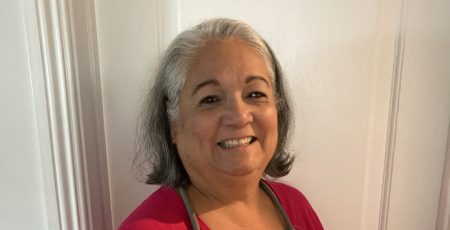
17 Sep Routine Dental Visits and COVID-19
On March 11, 2020, the World Health Organization declared COVID-19 a pandemic disease. Soon after, most states issued stay-at-home orders, doctor and dental offices were closed except for emergencies. Now, six months later, scientists have made remarkable progress on understanding how the virus spreads when virus particles exhaled by a symptomatic or asymptomatic person find their way into another person’s nose, mouth, or eyes, conveyed there either by inhaling droplet-filled air or by second-hand contact with a surface.
This poses a great challenge to safely reopening dental practices. Dental procedures by their nature send saliva droplets and aerosols into the air and onto surfaces. Detailed guidelines and suggested protocols have been put in place by the CDC and state health departments seeking to reduce risks of catching COVID-19.
I have COPD and my husband has heart disease. We are both older seniors at high risk of a bad outcome should we contract COVID-19. Dental offices are now open. We were way overdue for our regular exam and cleaning. We practice good oral hygiene at home but we both have a large number of crowns, root canals, and implants that don’t last forever. Like us, our teeth are older and prone to develop problems. We didn’t want to wait for an emergency to develop.
We lost a dear friend who waited until it was too late. The infection from an infected molar went to his heart.
But what about the risk of getting COVID-19 at a dental appointment? I asked my dentist, Dr. Vasi Bazos who has a practice in Torrance, California to address my concerns. Here is her reply.
“Maintaining oral health especially at this time of a global pandemic is even more important. Don’t wait until the pandemic is over to address dental needs. It should be something that is ongoing, during, and beyond the pandemic.
Routine checkups and cleanings are important because dental issues can be detected early and other oral pathologies are what we are looking for. Temporomandibular joint (TMJ) issues and cracked teeth have been markedly on the rise in my practice since this pandemic started. Many diseases have early oral manifestations: cancers of the mouth and other cancers, Crohn’s disease, fungal infections, acid reflux, and other digestive conditions. During the dental exam, we screen for hypertension and head and neck palpation aid to early discovery of cysts, tumors, and thyroid issues.
We follow CDC, ADA, and local guidelines thorough screening prior to the dental visit in the form of a questionnaire, as well as temperature and pulse oximeter readings to further help keep the office safe. The “virtual” waiting room has been established, where a patient waits in the car and goes directly into the operatory, wearing a mask, without stopping at the front desk. Patients are asked to wash their hands, and just before dental treatment starts, they rinse with molecular iodine oral antiseptic. This is all repeated again when the appointment ends, and the patient leaves the office. This routine minimizes the touching of surfaces and time spent in the office. We have also halved our capacity, occupying only every other operatory, to allow for plenty of distancing between treatment rooms. Sneeze guards have been placed in appropriate areas within the office.
Examples of enhanced protective measures at my practice include HEPA, filters, fogging, and surface disinfection, with hypochlorous acid, air purifiers, and opening windows indoors in the dental office. Up to the time this article was written, there has not been a single case of SARS-CoV-2 transmission from dentist to patient (and vice versa) documented in the scientific literature. My staff and I feel very comfortable in the dental setting because we control the environment with additional protocols of safety. This virus is real, and we must respect it and not underestimate it. At the same time, we cannot stop living our lives. We must adapt and learn to live with SARS-CoV-2 as we do with so many other viruses. This includes practicing good hygiene, wearing masks, and keeping a distance from others whenever possible. Practicing good nutrition with a healthy and balanced diet is known to be beneficial in boosting immunity. Oral health plays a very important role in immunity and overall health.”
My husband and I had our appointments last week. I received an “A” on my cleaning and exam. Jennifer, our hygienist, found he had a cracked tooth under a crown that had a root canal. This discovery has avoided an implant, a much more expensive procedure with many more dental visits.
Only you and your dentist can decide if you should postpone your visit. Check in with yourself and your dentist. If you have underlying medical conditions talk to your doctor. Maintain good oral hygiene. Remember good dental care starts at home.
Anita Gash





Boynton beach rehab
Posted at 09:28h, 13 OctoberIt’s great that you post articles like this and raise these issues as they are. Now everyone is very worried about the pandemic and COVID, and this is not surprising. Who would not be scared to know that you can get infected with a virus that can kill you? It’s very scary. But there are some things that we cannot refuse. The list of these things includes a visit to the dentist. After all, as my dentist says, pain is the very last sign that something is wrong with the tooth. Therefore, it is necessary to contact the dentist on time. Therefore, I go to my dentist and think that this is normal.